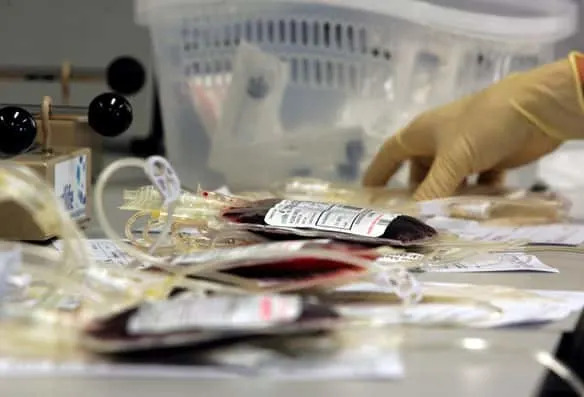Rod Minchin, PA
Sat, 17 February 2024
Hundreds of people have joined protests against the proposed loss of thousands of steel jobs in South Wales.
Tata is consulting on plans to shut down blast furnaces at Port Talbot with the loss of around 2,800 jobs as it switches to a more environmentally friendly way of producing steel.
The firm plans to invest £750 million in the electric arc furnace, alongside funding for a support package for the employees expected to be made redundant during the transition.
The UK Government has committed to investing £500 million at the site.
A protest is being held in Port Talbot, while workers from the Llanwern site marched in Newport city centre.
Trade unions Unite and Community are currently balloting its workers at Tata over strike action.
Among those attending the Port Talbot rally were Welsh Government ministers Vaughan Gething and Jeremy Miles who are rivals to be the next Welsh Labour leader and First Minister.
Unite general secretary Sharon Graham said there have been almost 6,400 jobs lost in the British steel industry since 2015.
“Friends, together our politicians have sat by and watched our steel industry be decimated,” she told the rally.
“They have handed our steel to overseas corporations, undermined our economy and our national security.

Around 2,800 jobs could be lost (Peter Jehle via X/PA)
“Well, we say here together: no more. The time for begging is over. Now is the time for action. Now is the time for us to fight with everything we have. Fight for our communities and fight for UK steel.”
Community union assistant general secretary Alasdair McDiarmid said: “Tata’s bad deal for steel would be devastating for South Wales, with thousands of jobs on the line both directly and in the supply chain.
“The economy would suffer, and Britain losing its strategic steelmaking capability would pose a grave threat to national security and sovereignty.
“We are urging Tata and the UK Government to reconsider the destructive path they are taking us down, and to look again at the credible alternative which is already on the table in the form of the multi-union plan which Community and GMB have put forward.”
Stephen Kinnock, Labour MP for Aberavon, said: “Port Talbot steelworks has been the beating heart of our community for generations.
“Tata’s proposals for the site threaten that proud tradition and the works’ enormous future potential.
“Their narrow, electric arc furnace-only plan would sacrifice highly-skilled local jobs and leave the UK dependent on dirty steel imports.
“The people of Port Talbot and South Wales are rightly asking the company to stop and think again before it is too late – it is time for Tata, and the UK Government, to listen.”
A Tata Steel spokesman said: “Much of our existing iron and steelmaking operation in Port Talbot is at the end of its life, is unreliable and inefficient, and contributing to losses of £1.7 million a day in the last quarter alone.
“We believe we have a very exciting future ahead, providing the high quality, low-CO2 steels that our customers in the UK and overseas are so desperate for.
“Furthermore, producing steel from scrap that already exists in significant quantities in the UK rather than importing iron ore and coal from across the world, will be the foundation for more resilient UK manufacturing supply chains.”
A UK Government spokesman said: “We recognise that this is a concerning time for Tata’s employees at Port Talbot and we will continue to support staff affected by the transition.
“The UK Government has put in place one of the biggest support packages in history, with a £500 million grant as part of the £1.25 billion commitment by Tata to secure the future of the Welsh steel industry.
“Additionally, £100 million has been put towards the creation of a Transition Board – £80 million from the UK Government and £20 million from Tata Steel.
“This record level of support shows just how much the UK Government values the Welsh steel industry and the people and communities whose livelihoods depend on it.”











